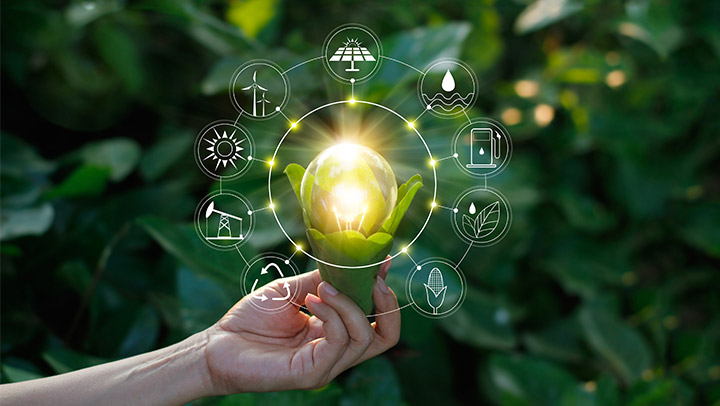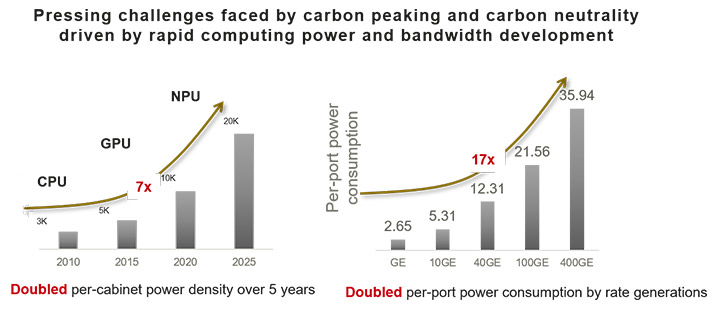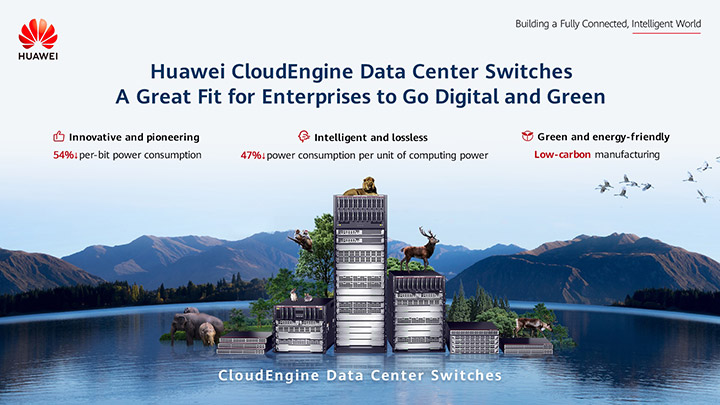このサイトはCookieを使用しています。 サイトを閲覧し続けることで、Cookieの使用に同意したものとみなされます。 プライバシーポリシーを読む>
![]()
このサイトはCookieを使用しています。 サイトを閲覧し続けることで、Cookieの使用に同意したものとみなされます。 プライバシーポリシーを読む>
![]()
企業ユーザー向け製品、ソリューション、サービス
Today, the need for computing power extends to every corner of the digital economy, from smart banking to smart retail and from smart manufacturing to smart logistics. In the blink of an eye, the world realized it is critical to have robust computing power in all aspects of our daily lives. Meanwhile, smarter and greener data centers are being constructed at an accelerated pace.

As the demand for data centers grows and the scale of data center construction increases, conserving energy is becoming an increasingly pressing challenge.
According to the China Academy of Information and Communications Technology (CAICT), by the end of 2021, China's data centers had a combined total of more than five million standard Rack Units (U). To put this into context, an ultra-large data center with more than 10,000U consumes 100 million kWh of electricity each year, and the annual power consumption of data centers around the world exceeds 200 billion kWh. All of this means that transforming data centers, with a focus on making them greener and low carbon, should be top of the agenda.
Power Usage Effectiveness (PUE) — the ratio of the total energy consumption of data center devices to the energy consumption of Information Technology (IT) devices — is a key indicator for measuring data centers' energy consumption. A lower PUE rating means a more efficient data center. In order to reduce PUE, a common practice in the industry is to use more renewable resources while continually improving infrastructure technologies, such as cooling and power distribution, to minimize power consumption.
As both the computing power and network bandwidth of data centers keep increasing, so too does their energy consumption. Yet the significant increase in energy consumption cannot be fully offset by merely using renewable resources. To further save energy and reduce emissions for data centers, we need to think outside of the box. More specifically, we need to improve computing capability and reduce the energy consumption per unit of computing power to get the most out of each kilowatt-hour of electricity.


Using lossless Ethernet networks, Huawei's CloudFabric 3.0 Hyper-Converged Data Center Network (DCN) Solution enhances network capabilities to maximize computing efficiency, while minimizing the energy consumption per unit of computing power, enabling green data center networks with optimal computing power.
• Lossless Ethernet, unleashing maximum computing power: Drawing on the iLossless 2.0 algorithm, Huawei's CloudFabric 3.0 Hyper-Converged DCN Solution implements the industry's first Ethernet with zero packet loss. In this way, it builds a large-scale, low-latency, and high-throughput computing power network, unleashing 100% of computing power. For example, in a High-Performance Computing (HPC) scenario, lossless Ethernet delivers 17% higher computing efficiency than an InfiniBand (IB) network, shortening the overall computing time.
• Energy saving and the lowest power consumption per unit of computing power: CloudEngine data center switches use more than 10 cutting-edge heat dissipation and power supply technologies, such as SuperCooling and SuperPower, delivering 54% lower per-bit power consumption than the industry average and 47% lower power consumption per unit of computing power than traditional Ethernet.
• Green and low-carbon manufacturing: Based on the principle of "no use, less use, and reuse," Huawei CloudEngine data center switches achieve sustainable low-carbon manufacturing. For example, to achieve a green and manufacturable design, Huawei has integrated the independent packaging of optical modules into six-in-one packaging, slashing the unpacking time by 85% and saving 18 tonnes of packaging materials.
Huawei CloudEngine series data center switches are designed to improve energy efficiency and reduce noise pollution, all while adhering to green manufacturing practices. In the future, Huawei will continue to innovate, to help equip enterprise data centers with high computing power to accelerate their green transformation, injecting momentum into the campaign for global carbon neutrality.
Disclaimer: The views and opinions expressed in this article are those of the author and do not necessarily reflect the official policy, position, products, and technologies of Huawei Technologies Co., Ltd. If you need to learn more about the products and technologies of Huawei Technologies Co., Ltd., please visit our website at e.huawei.com or contact us.